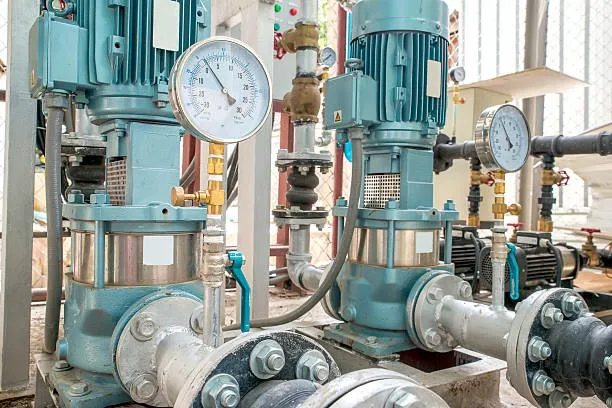
Boiler Tune-Up in Landisville, PA
Keeping your boiler running safely and efficiently is essential for homes in Landisville, PA. Cold Lancaster County winters, older housing stock, and frequent heating demand mean boilers here work hard — and small problems can quickly turn into mid-season breakdowns. A professional boiler tune-up in Landisville, PA identifies hidden issues, restores combustion efficiency, and reduces the risk of unsafe conditions so your system delivers steady, economical heat throughout the season.
Why a boiler tune-up matters in Landisville homes
Landisville experiences long heating seasons and temperature swings that put repeated stress on boilers. Many homes in the area still rely on older cast-iron or packaged boilers, which are prone to soot buildup, corrosion, and control wear. Regular tune-ups:
- Improve combustion efficiency and lower fuel use
- Detect safety hazards like cracked heat exchangers or faulty safety controls
- Prevent mid-season failures when service access can be limited
- Extend equipment life and preserve manufacturer warranty requirements
Common boiler issues in Landisville
Homeowners commonly see the following problems during tune-ups:
- Soot or carbon buildup on the heat exchanger and combustion components from incomplete combustion
- Dirty or misaligned burners causing uneven flame shape and reduced efficiency
- Blocked flues or venting problems leading to poor draft or carbon monoxide risks
- Worn safety controls and sensors (pressuretrols, low-water cutoffs, aquastats)
- Scale and sediment in hydronic systems that reduce heat transfer and circulate pump strain
- Incorrect system pressure or trapped air in radiators and baseboards
What a complete boiler tune-up includes
A professional Landisville boiler tune-up is a thorough inspection and adjustment process designed to restore safe, efficient operation. Typical elements include:
- Initial system assessment
- Visual inspection of boiler exterior, piping, controls, and venting
- Check of recent operating history and any homeowner concerns
- Performance and combustion analysis
- Stack/flue gas testing for carbon monoxide (CO), oxygen (O2), CO2, and stack temperature
- Measurement of draft and combustion efficiency to verify proper fuel/air mix
- Burner adjustment and inspection
- Clean burners and pilot assemblies as needed
- Adjust burner settings, electrode gaps, and gas/air ratio for optimal flame pattern
- Inspect ignition components and replace worn electrodes or igniters if necessary
- Heat exchanger inspection and cleaning
- Visual and, when accessible, borescope inspection of the heat exchanger for cracks, corrosion, or leaks
- Removal of soot and scale from combustion passages and heat transfer surfaces
- For hydronic systems, assessment of internal scale that impairs heat transfer
- Safety control testing
- Test pressure relief valve, automatic safety shutoffs, low-water cutoff (steam boilers), and high-limit controls
- Verify proper operation of the boiler’s operating controls, circulator(s), and expansion tank
- System checks and optimization
- Verify correct system pressure and bleed trapped air from radiators or baseboards
- Inspect circulator pump operation and piping insulation
- Recommend water treatment or flushing if scale or corrosion is present
- Final testing and documentation
- Re-run combustion tests to confirm improved efficiency
- Provide a written summary of findings, recommended repairs, and maintenance priorities
Safety and combustion testing explained
Combustion analysis is the cornerstone of a safe and effective tune-up. Measuring CO and oxygen levels in the flue shows whether combustion is complete and whether the venting system is drafting properly. High CO or low O2 indicates adjustment or repair is required. Testing safety devices ensures the boiler will shutdown or fail-safe if pressure, temperature, or water-level problems occur — a critical step for preventing hazardous situations.
Typical duration and what affects time on site
Most routine boiler tune-ups in Landisville take about 60 to 90 minutes for a standard residential unit. Factors that extend service time include:
- Heavy soot or scale buildup requiring extended cleaning
- Restricted access to combustion chamber or heat exchanger
- Additional component replacement (igniters, electrodes, sensors)
- Comprehensive hydronic system flushing or water treatment
Efficiency optimization tips for Landisville homeowners
Small changes after a tune-up help sustain efficiency and reduce the chance of breakdowns:
- Schedule a pre-season tune-up each fall before heavy heating use
- Keep boiler area clear for proper combustion air and easy service access
- Maintain correct system pressure and bleed radiators/baseboards to remove trapped air
- Install a programmable thermostat to reduce runtime during unoccupied periods
- Consider water treatment or a system flush for older hydronic systems with visible scale or rust
- Insulate exposed hot water piping and steam traps where applicable
How tune-ups prevent mid-season breakdowns
A tune-up identifies wear and stresses before they cause failure. Adjusting the burner, cleaning combustion passages, and testing safety controls removes the most common causes of emergency outages: clogged burners, failed ignition, poor draft, and control malfunctions. Early detection of a cracked heat exchanger or failing circulator pump allows planned repairs rather than disruptive emergency replacements during the coldest weeks of the year.
When to schedule and frequency
Annual tune-ups are recommended for virtually all residential boilers, with priority before the heating season starts. Systems with heavy use, older equipment, or known combustion issues may need semi-annual checks. Regular maintenance is the most reliable way to preserve efficiency, safety, and long-term value.
What to expect after the service
After a professional boiler tune-up you should notice steadier heat delivery, a quieter system, and more consistent thermostat performance. A detailed service report will outline any findings, parts replaced, and suggestions for repairs or future maintenance needs. If combustion testing revealed unsafe CO levels or venting problems, immediate corrective action should be taken to ensure occupant safety.
A thorough, documented tune-up gives Landisville homeowners confidence that their boiler is operating safely and efficiently, reduces the risk of costly mid-season failures, and helps control heating costs across a long Pennsylvania winter.


Enjoy flexible financing options that make upgrading or repairing your HVAC system easy and budget-friendly.










